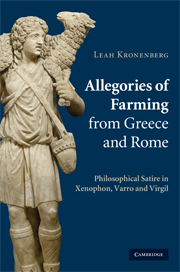Introduction
Published online by Cambridge University Press: 03 May 2010
Summary
T'enjoy the World's Conveniencies,
Be fam'd in War, yet live in Ease,
Without great Vices, is a vain
EUTOPIA seated in the Brain.
Bernard Mandeville, The Fable of the Bees (i.36 [23])In the early eighteenth century, the Dutch writer and philosopher Bernard Mandeville produced a satire of human society via an allegorical description of a bee state entitled The Fable of the Bees: or Private Vices, Publick Benefits. His fable originated as a 433-line poem entitled The Grumbling Hive: or Knaves turn'd Honest, which attracted little attention from the reading public when it was first published in 1705. However, his subsequent expansion and prose elaboration of the poem in 1723 so scandalized European society that the Grand Jury of Middlesex recommended that Mandeville be prosecuted, the French translation of the Fable of the Bees was burned by the public hangman, and published critiques of his work abounded. Mandeville attracted infamy because, instead of using bees to represent an orderly and virtuous monarchy, he used the hive to model the rampant vices that he believed are responsible for a flourishing human society, namely greed, luxury, and other self-interested appetites. As such, his work flouted the moralizers of Augustan England, epitomized by the Society for the Reformation of Manners, who sought to police private life and eradicate immorality. In contrast to these moralizers, Mandeville exposed virtue to be a mask or a delusion and set out a genealogy of society and morality based on the natural, self-interested passions that drive human beings.
- Type
- Chapter
- Information
- Allegories of Farming from Greece and RomePhilosophical Satire in Xenophon, Varro, and Virgil, pp. 1 - 36Publisher: Cambridge University PressPrint publication year: 2009



